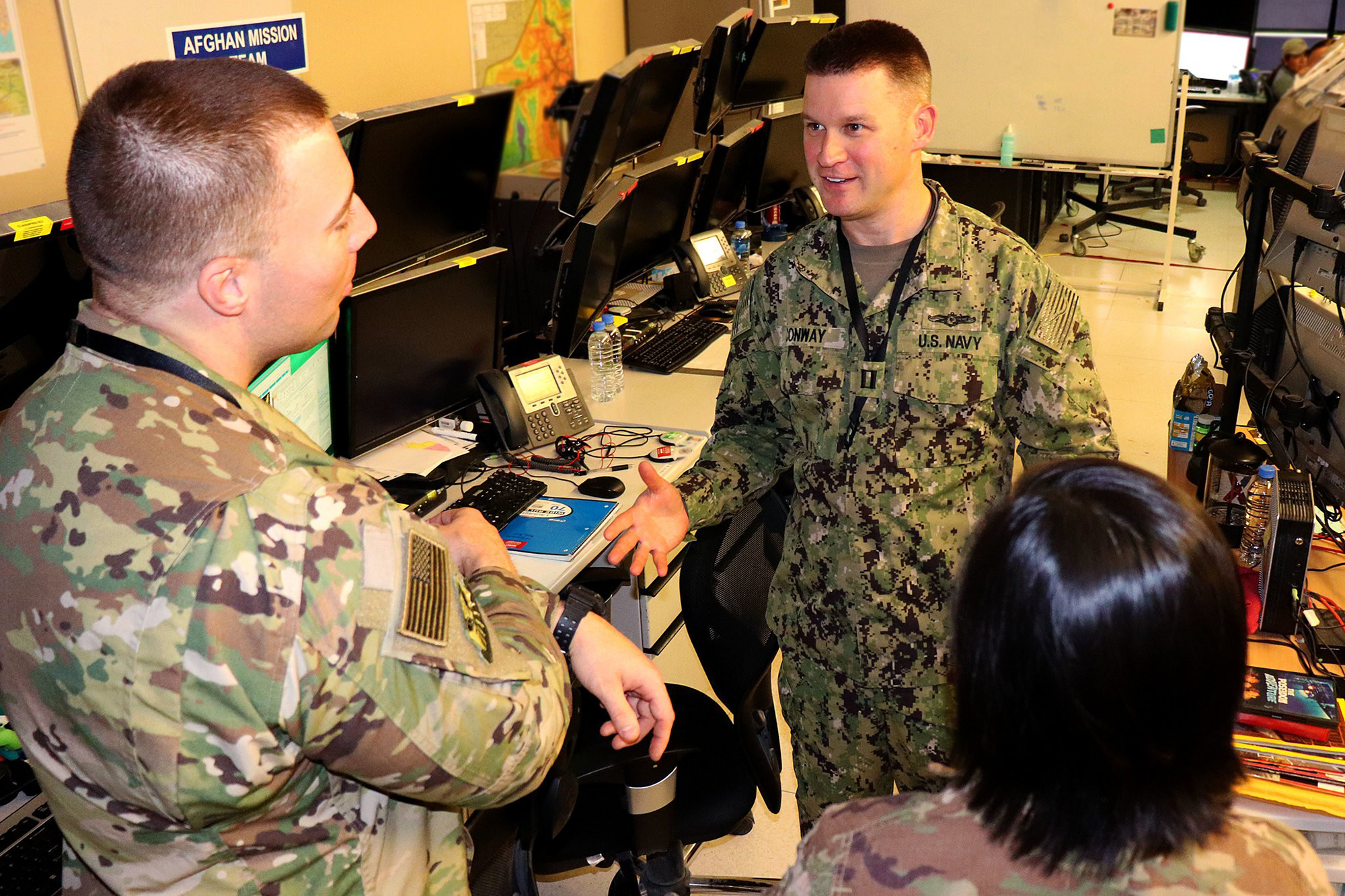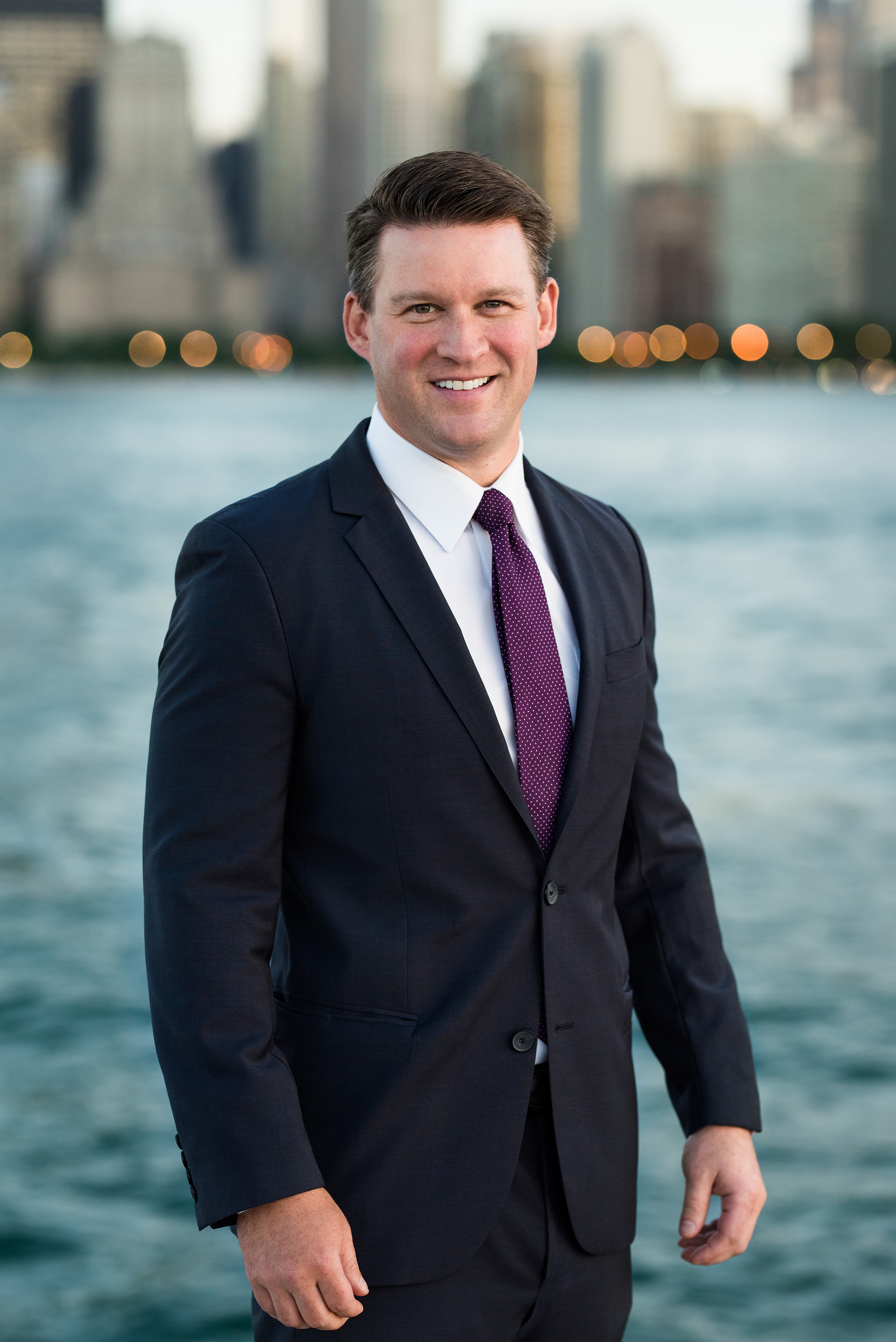 Using his accounting skills, finance Adjunct Professor Bill Conway worked with the U.S. Air Force to cut off the Taliban's funding. | Photo courtesy of U.S. Air Force.
Using his accounting skills, finance Adjunct Professor Bill Conway worked with the U.S. Air Force to cut off the Taliban's funding. | Photo courtesy of U.S. Air Force. As a finance faculty member in the Driehaus College of Business, Bill Conway brings his real-world experience in investment banking to the classroom. But what few of his students may know is that Conway once used his accounting skills to fight the Taliban for the U.S. Navy during an eight-month stint in Afghanistan and Qatar.
For Conway, joining the Navy was something he always wanted to do. A Chicago native, he grew up listening to war stories from his grandfather, a U.S. Navy Academy and Korean War veteran. He had tried to join the Navy after graduating high school, but was denied due to a heart procedure he had as a teenager. After rules about medical waivers changed, Conway was able to join as a reservist in early 2012 while working as a prosecutor for the Cook County State’s Attorney office.
“I thought I could be helpful to the military and I enjoy public service,” Conway says. “My grandfather had talked about the discipline and the focus it had given him and I wanted a dose of that myself, so that was what motivated me doing it. When I finally joined at 32, it was really because I thought I owed it to my 22-year-old self.”
After taking an aptitude test, a recruiter asked if he wanted to join the Naval Intelligence team. A few years later he was deployed to Qatar to work with Naval Air Forces to help take down the Taliban.
“I was in the Navy but I was essentially doing an Air Force job working with our drones there to attack the Taliban’s finances,” says Conway, who prepared for his role by reading every book he could on Afghanistan and its complicated history of war. “This initially involved using accounting and intelligence sources to map the Taliban’s revenue streams. We then used aerial surveillance over Afghanistan to find the Taliban’s narcotics processing laboratories to later strike them.”
 Bill Conway's career includes working as a state prosecutor, serving in the U.S. Navy, working in investment banking and launching his own start-up.
Bill Conway's career includes working as a state prosecutor, serving in the U.S. Navy, working in investment banking and launching his own start-up.For the next few months Conway worked in Qatar with a team of six analysts including personnel from the U.S. Air Force, the U.S. Army and the British Royal Air Force on the Al Udeid Air Base – the largest U.S. military facility in the Middle East. Their team’s goal was to stay on top of all intelligence trends and threats in Afghanistan, including squeezing the group’s funding from opium – estimated at $200 million a year, according to the New York Times.
The skills Conway used in his role as a U.S. intelligence officer stem from his wide-ranging career that has encompassed starting and running his own business, working in investment banking and prosecuting Chicago crimes.
Conway studied accounting at the Wharton School of Business. He graduated during the dot-com boom and, at just 22 year’s old, returned to Chicago to launch an e-commerce business with a friend. Unsure of what to do next, he decided on a whim to take the LSAT and attend Georgetown Law.
“While there, I came to love criminal law,” he says. “I was on their mock trial team. I came to love doing trial work. I just loved it. So I thought, ‘I really want to go and become a prosecutor for a few years and then I’ll go back to the business world.’”
Conway spent the next six years working in the Cook County State’s Attorney’s office. He dealt with all sorts of crimes – misdemeanors, narcotics, violence crimes, DUIs. Thanks to a department reorganization, Conway was moved to the Public Corruption and Financial Crimes division where he was able to work on more complicated cases.
After a while he began to miss working with numbers, which eventually led him to work toward an MBA at the University of Chicago’s Booth School of Business. During his final year he was hired as an associate for J.P. Morgan working for an investment banking industrial group.
Around that time, Conway was asked by his friend, Danielle Drabkin, a faculty member in the DePaul business college’s Department of Real Estate, to guest lecture for her class, Real Estate 350: Real Estate Analysis. He later co-taught that class with her. Conway eventually began teaching for the college’s Department of Finance. He now teaches Finance 310: Intro to Finance.
“The students here are really engaging,” Conway says. “They ask questions all the way until the end of class and then thereafter, and they really have a thirst for learning, and not just pure business networking, which you might see at other schools.”